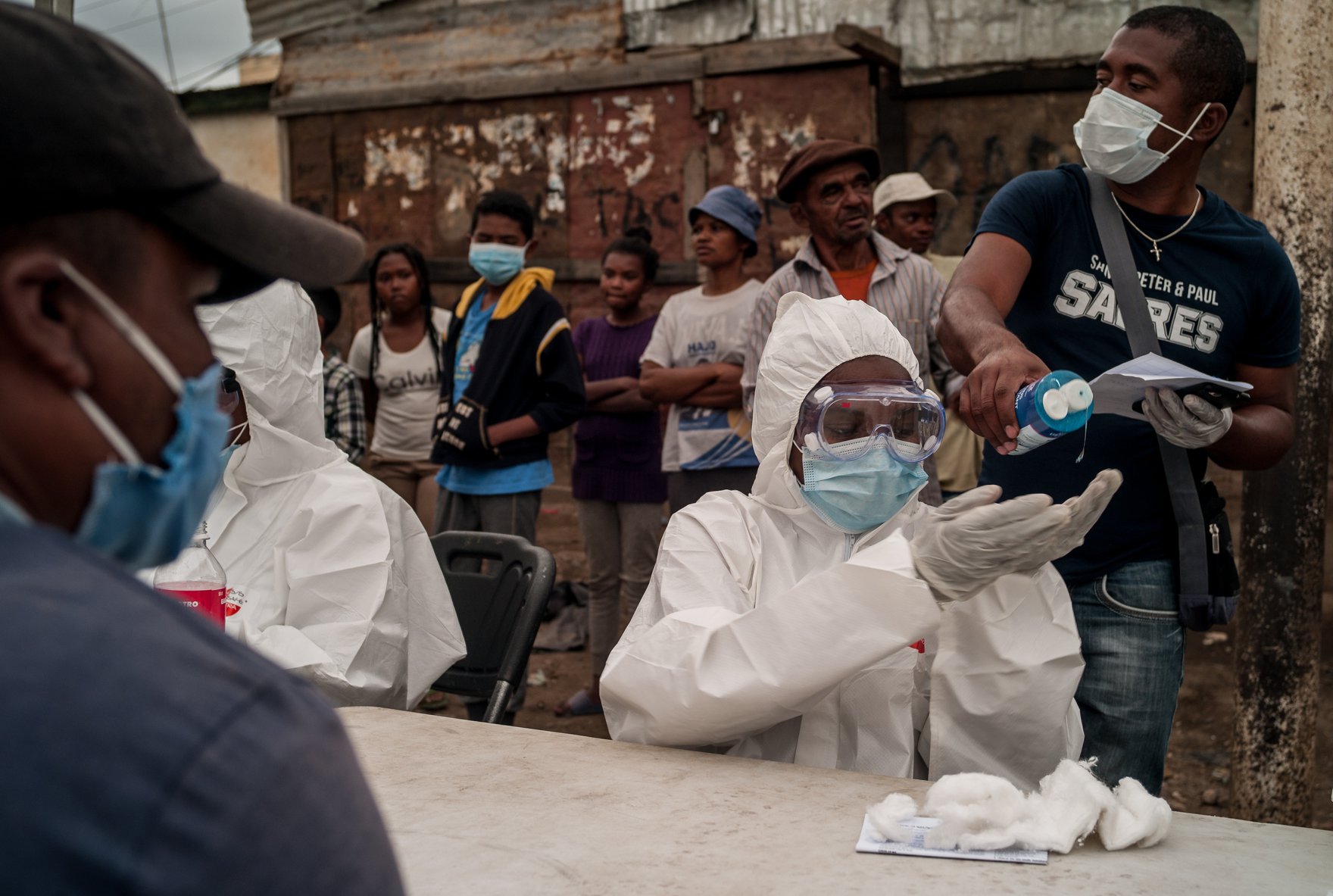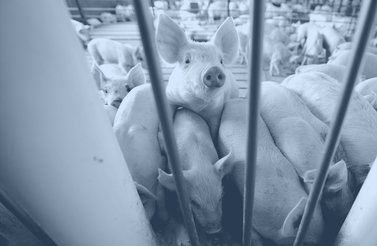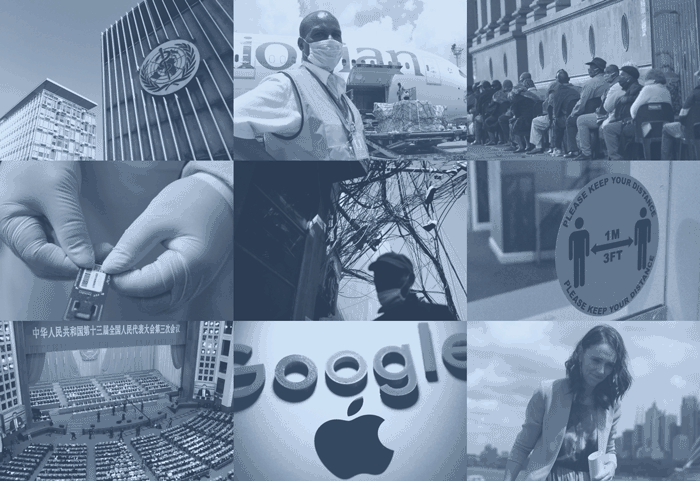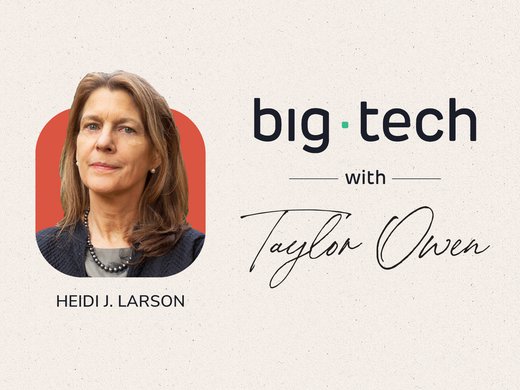The world is rightly celebrating the unprecedented speed with which vaccines for COVID-19, the novel coronavirus, are approaching manufacture and distribution stages. When COVID-19 vaccines become widely available, millions of lives can be saved, and the loss of US $375 billion to the global economy every month can be prevented.
Yet, while billions of people worldwide await their doses of the new vaccines, many countries are also courting “the tragedy of vaccine nationalism.” With potentially lethal global consequences, these countries are giving unwise priority to the immediate universal national vaccination of their own citizens instead of to a scientifically targeted national and international vaccination, which would be the most effective means of saving lives everywhere and should be the global goal during the COVID-19 pandemic.
Wherever we may live, giving preference to vaccinating our fellow nationals who are the least at risk of COVID-19 infection over people from other countries who are the most at risk is not only morally wrong, but also contrary to our national self-interest. To provide the most protection to people from anywhere, the COVID-19 vaccines must be distributed in ways that will save the most lives everywhere. They must not be deployed in ways that will hasten the turn away from internationalism and toward an insular nationalism. Vaccine nationalism will save fewer lives, and it will pull the nations of the world farther apart at a time when the world must unite to confront the global emergency of the COVID-19 pandemic.
The antidote to vaccine nationalism is vaccine multilateralism. An international cooperative effort should work to distribute the vaccine first to wherever it is needed most, without consideration of national wealth or power. Furthermore, this global effort should get the vaccine to all who need it. In keeping with the common pledge made by all the members of the United Nations in the Sustainable Development Goals, this multilateral effort must make certain that “no one will be left behind,” and it must “endeavour to reach the furthest behind first.” The goal is to end the pandemic, and this goal cannot be achieved if a vaccine is not available to everyone sooner rather than later, including — and especially — those in the poorer countries of the world.
An international cooperative effort should work to distribute the vaccine first to wherever it is needed most, without consideration of national wealth or power.
In pursuit of this goal, practicality demands multilateral cooperation. The devastating COVID-19 pandemic cannot be defeated by nationalism. It can only be defeated by internationalism in the form of mutually beneficial multilateral cooperation. Without much more multilateral cooperation on access to new vaccines, the “whack-a-mole” resurgence of COVID-19 in country after country cannot be prevented, and the pandemic cannot be stopped. Instead, the intense health and economic suffering caused by the pandemic will persist and indeed increase worldwide.
Discovering an effective vaccine is only the first step toward ending the pandemic. This initial step will be followed by an extraordinarily complicated process of production and distribution within and between countries worldwide. This task simply cannot be undertaken successfully by any one country no matter how large or powerful that one country may be and no matter whether it happens to be home to the enterprise that succeeds first in developing an effective vaccine. The novel coronavirus knows no national borders. Attacking us everywhere, it must be attacked by us everywhere through cooperative multilateral action.
Noble attempts are being made worldwide to ensure sufficient multilateralism. As the threat of vaccine nationalism became apparent in the first months following the COVID-19 outbreak, the World Health Organization (WHO), GAVI (the nongovernmental global vaccine alliance), and the Coalition for Epidemic Preparedness Innovations (CEPI) formed the COVID-19 Vaccine Global Access Facility (COVAX) as an intended vehicle for multilateral cooperation in battling the pandemic. The COVAX plan is to buy vaccines in bulk and then distribute two billion doses equitably around the world. This approach would provide enough doses for 20 percent of the people in the developing world by the end of 2021, including all the front-line health care workers and the most vulnerable.
At last count, 184 countries are participating in COVAX. But some of the largest countries in the world are not participating, which threatens to undermine this multilateral effort. Canada, the European Union, India, Japan, and the United Kingdom are taking part. After months of hesitation, China announced in October that it, too, will participate. However, the United States and the Russian Federation have not yet joined. Although US health scientists recommended that the United States enlist in COVAX, President Donald Trump decided not to join. His Administration did not want its endeavours against the pandemic to be “constrained by multilateral organizations influenced by the corrupt World Health Organization and China.”
Instead of acting with others multilaterally to find an effective vaccine, the United States, under President Trump, chose to go it alone. When the Trump administration was asked about its global responsibilities, the reply was that it “would focus on bilateral efforts with international partners and that it would consider supplying vaccines to other countries after Americans are immunized.” In effect, this “America first” policy gives priority for vaccines to low-risk Americans over the high-risk health care workers and other vulnerable people in the rest of the world.
The Trump administration effectively forfeited the role of global leader that the United States has played in past pandemics. This retreat from global responsibility has sparked global concerns that COVAX “could falter without official US support and leadership.”If the United States remains on the sidelines multilaterally, then the deadly virus of vaccine nationalism has a much greater chance of prevailing in a wrought world increasingly wary of international actions and weary of fighting the relentless virus.
It is only natural for national leaders to act as if they have a greater obligation to the citizens of their own country than to those of other countries. The expectation in every country in the world is that priority will be given to shared nationality over shared humanity. For thousands of years, cosmopolitans have contended that all of humanity is one, and that, therefore, each member of the human species should see and treat every other member equally, no matter their national origin or identity. But try telling this to any parent with a child, any patriot with a flag, or any politician with a constituency. For most people throughout the world, the circle of human concern encompasses those “like us” who are close to home, but it has not yet widened to include everyone in the world.
For its part, China is dealing with the aftermath of its own early failure to confront and contain the pandemic, which began in Wuhan and spread quickly after initial denials, delays, and obfuscation by the Chinese government. As the virus has spread, unfavourable views of China in some other countries have reached record highs. China has four vaccines in phase 3 clinical trials. Chinese President Xi Jinping has promised $2 billion to fight the pandemic and has also promised that a vaccine produced in China will be treated as “a global public good.”
China’s decision to enlist in COVAX may indeed have been inspired, in part, by a conviction that a vaccine should be a global public good. It may also be that China’s decision to join COVAX was, in part, a public-relations move intended to repair China’s damaged global reputation. At the same time, China has been pledging to send its vaccines to developing countries that have been sites for its vaccine trials. Whatever China’s motive for joining COVAX, its participation will boost the multilateral effort.
The United States is not alone in succumbing to vaccine nationalism. The European Union, Japan, the United Kingdom, and the United States have contracted to buy at least 3.7 billion doses of potential COVID-19 vaccines from drug companies, including options for buying additional doses. Canada has pre-purchased 300 million vaccine doses for a population of 38 million – nearly eight doses per person. China and India expect to steer much of their vaccine production first to their own citizens. Health experts have advised that these arrangements are “likely to tie up nearly all of the immediate global vaccine manufacturing capacity….” Those at risk in the poorest countries will get the doses that are left over – if there are any.
Many of the COVID-19 vaccines will require two doses. Thus, nearly 16 billion doses will be needed to vaccinate all of the 7.8 billion people in the world. The WHO estimates global capacity for manufacturing COVID-19 vaccines at between two billion and four billion doses by the end of 2021. The Center for Global Development says it is unlikely there will be enough doses of a vaccine for the entirety of the world’s population before September 2023. The world’s largest vaccine maker — Serum Institute in India — predicts that there will not be enough doses for everyone in the world until, at the earliest, the end of 2024.
Therefore, once a COVID-19 vaccine is available, it will need to be allocated in ways that give priority to some people over other people. Initially, and for some unknown time thereafter, vaccine demand will exceed supply. If vaccine nationalism determines who gets doses of a vaccine, when they get them, and how many of them they get, then cosmopolitan idealism will not avail. The person we know who lives next door will loom large. But will that be so for the person we do not know who lives on the far side of the world?
At issue is a question of fundamental global justice. The right thing to do is to vaccinate first those who are at the highest risk of being infected by the virus, irrespective of where they may live in the world or what their economic circumstances may be. As a matter of justice, the Lancet COVID-19 Commission — a global group of health experts created in July to help speed up fair and enduring global solutions to the pandemic — has stated that “any new vaccine or therapeutic must be developed and implemented with a view to equitable access across and within countries.”
If the United States insists on “going it alone,” more Americans may perish from COVID-19 during this interim than if the United States were to reverse its current course and embrace multilateralism.
Ideally, an appeal to justice should suffice, but, here in the real world where we “live and work and die,” it rarely does. National policies are rarely based on what is thought to be just. They are almost always based instead on a country’s pragmatic perception of what is in its self-interest. For this reason, a multilateral antidote to vaccine nationalism will not be found unless and until more countries see that acting multilaterally is in their own self-interest. Fortunately, beyond the question of justice, at issue, too, is the question of identifying the true national interest.
To use the United States as an example, it may be asked: Once 330 million Americans have been vaccinated, will that not end the spread of the virus in the United States? To be sure, Americans should help others elsewhere in the world once they have fully helped themselves; but how can it be in the self-interest of Americans to share a vaccine with foreigners before all Americans have been vaccinated? In combating COVID-19, the rallying cry of the advocates of vaccine multilateralism is, “No one is safe until everyone is safe.” This is an appealing applause line, but why is this true?
No one is safe until everyone is safe for several reasons. To begin with, even if the first effective COVID-19 vaccines will be made by American companies — as seems most likely now — going it alone risks limiting access to international medical supply chains, which are necessary for obtaining the often rare and exotic inputs into making vaccine products. Next, vaccinating 330 million Americans could take some time. Although the first supply is rolling out before year-end, vaccines will likely not reach much of the general public until at least mid-2021. Furthermore, in one poll, only 58 percent of Americans confirmed that they would be willing to take a vaccine as soon as one became available. Also, the science remains unclear on how effective a vaccine will be, how long immunity will last, and the extent of any side effects.
In addition, while the United States gradually vaccinated all Americans, including those at lower risk of serious illness, the people most vulnerable to the virus in many other countries would not have access to vaccination. So, the pandemic would continue to rage worldwide, with more, and more virulent, outbreaks everywhere, including in the United States, which cannot be placed in an isolation ward away from the rest of the world. Thus, there will be an unknown interim between the first and the last of 330 million American vaccinations during which time those Americans who are still waiting to be vaccinated will continue to be exposed to infection. If the United States insists on “going it alone,” more Americans may perish from COVID-19 during this interim than if the United States were to reverse its current course and embrace multilateralism.
Yet another reason why it is in the self-interest of the United States to act multilaterally instead of unilaterally against COVID-19 is that, according to public health experts, a global “patchwork pattern of vaccination coverage” in which “wealthier countries vaccinate widely while poorer countries remain exposed could prolong border closures and trade and travel disruption while allowing the virus to thrive in many places and remain a global threat….” That would cause demand for US exports to decline and create disruptions in supply chains vital to the US trade. American growth would be hindered, more American jobs would be lost, and more American families would plunge over the edge into financial disaster.
For all of these reasons, in combating the COVID-19 pandemic, being open to and engaged with the wider world makes sense for the United States, just as it does for all other countries. Contrary to the prevailing view in the United States, acting multilaterally rather than unilaterally would be putting the self-interest of the American people first. As COVID-19 vaccines edge closer to widespread market distribution, global eyes are focused on the United States in the hope that Americans will realize that a global approach to vaccination is in their own interest, reclaim their global leadership role, and embrace once more the search for multilateral solutions.
The election of Joe Biden as president gives the United States the opportunity to reconsider its “America first” policy on the distribution of COVID-19 vaccines. It is unclear whether, once he becomes president, Biden will be willing to vaccinate any foreigners before all Americans are vaccinated. But he can be expected to rejoin the WHO, enlist the United States in COVAX, and engage in other multilateral endeavours to fight the COVID-19 pandemic. These actions would be in the American interest, would also be just, and would help make multilateralism the antidote to vaccine nationalism.





